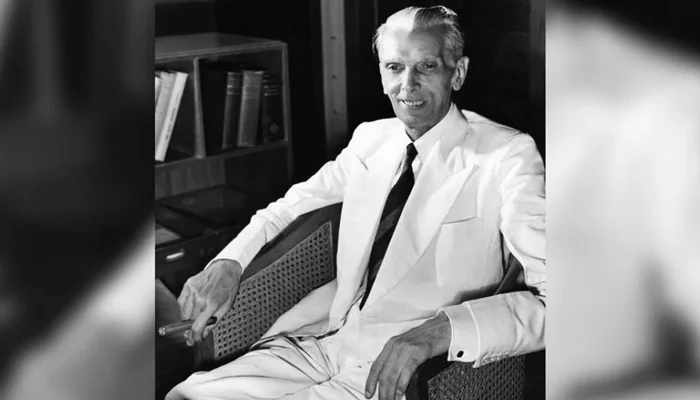Unity in diversity
As December unfolds, Pakistan finds itself immersed in a unique blend of celebrations, marking both Christmas and Jinnah Day. These two crucial events are intertwined in so many ways, reminding us of the desperate need for tolerance and acceptance of all beliefs in a nation that stands divided along lines of religion, sect, and ethnicity. Quaid-e-Azam Muhammad Ali Jinnah spoke on more than one occasion of the need for tolerance, of a country that belonged to all.
In his own life, Jinnah had been an enlightened man, unwilling to speak along the lines of hatred but focusing only on justice and equality for all human beings. His words and speeches, including that famous address to the Constituent Assembly of Pakistan just a few days before the country formally came into being, have been largely eradicated from our narrative as a nation and wiped away to a very large extent from most textbooks and many historical accounts. But we know that Jinnah truly wished for a nation where each is free to go to their churches or temples or mosques.
The convergence of Christmas and Jinnah Day thus is a poignant reminder of Pakistan’s diverse heritage and the need to uphold the values of inclusivity and pluralism. It is a time to celebrate the contributions of all communities to the nation’s fabric and to reaffirm the commitment to a Pakistan where every citizen is free to practice their faith without fear or prejudice. This December 25 also comes at a particularly devastating time for the world’s oppressed – a war on Palestinian bodies raging on; a war on the Global South by human-made climate change; and a war on Pakistan’s oppressed communities by the one per cent powerful status quo in the country. Jinnah’s legacy, apart from the country he bestowed on us, should have been his determination that Pakistan be a country where a person’s faith should have no bearing on his or her rights as a citizen. It did not take long after Jinnah’s death for us to stray from his path – and today Pakistan is a place where minorities, both religious and sectarian, live in constant fear. In a kind of convoluted caste system that has no place in Islam, Christians have been relegated to the lowest economic roles in society and denied opportunities for educational, economic, and social growth. It is all this we need to think about as we remember Quaid-e-Azam Muhammad Ali Jinnah today on the day dedicated to his memory.
This December 25 – as we wish all our Christian readers a very happy Christmas in the hope of a time in the near future when they can celebrate without fear – we should ponder over what kind of country we hope to be: one in which plurality is celebrated or one in which even protesting for rights is seen as a crime? A country where wishing someone a merry Christmas becomes an almost radical step is certainly not the Pakistan Jinnah envisaged – and it is not the Pakistan we should settle for. The celebrations of Christmas and Jinnah Day offer an opportunity for Pakistanis to come together in a spirit of unity and solidarity. As the lights of Christmas illuminate homes and the spirit of Jinnah inspires hearts, let us not just embrace the season with open arms but also look at difference, dissent, and diversity with reflection and hope.
-
 Katherine Schwarzenegger Shares Sweet Detail From Early Romance Days With Chris Pratt
Katherine Schwarzenegger Shares Sweet Detail From Early Romance Days With Chris Pratt -
 Jennifer Hudson Gets Candid About Kelly Clarkson Calling It Day From Her Show
Jennifer Hudson Gets Candid About Kelly Clarkson Calling It Day From Her Show -
 Princess Diana, Sarah Ferguson Intense Rivalry Laid Bare
Princess Diana, Sarah Ferguson Intense Rivalry Laid Bare -
 Shamed Andrew Was With Jeffrey Epstein Night Of Virginia Giuffre Assault
Shamed Andrew Was With Jeffrey Epstein Night Of Virginia Giuffre Assault -
 Shamed Andrew’s Finances Predicted As King ‘will Not Leave Him Alone’
Shamed Andrew’s Finances Predicted As King ‘will Not Leave Him Alone’ -
 Expert Reveals Sarah Ferguson’s Tendencies After Reckless Behavior Over Eugenie ‘comes Home To Roost’
Expert Reveals Sarah Ferguson’s Tendencies After Reckless Behavior Over Eugenie ‘comes Home To Roost’ -
 Bad Bunny Faces Major Rumour About Personal Life Ahead Of Super Bowl Performance
Bad Bunny Faces Major Rumour About Personal Life Ahead Of Super Bowl Performance -
 Sarah Ferguson’s Links To Jeffrey Epstein Get More Entangled As Expert Talks Of A Testimony Call
Sarah Ferguson’s Links To Jeffrey Epstein Get More Entangled As Expert Talks Of A Testimony Call -
 France Opens Probe Against Former Minister Lang After Epstein File Dump
France Opens Probe Against Former Minister Lang After Epstein File Dump -
 Last Part Of Lil Jon Statement On Son's Death Melts Hearts, Police Suggest Mental Health Issues
Last Part Of Lil Jon Statement On Son's Death Melts Hearts, Police Suggest Mental Health Issues -
 Leonardo DiCaprio's Girlfriend Vittoria Ceretti Given 'greatest Honor Of Her Life'
Leonardo DiCaprio's Girlfriend Vittoria Ceretti Given 'greatest Honor Of Her Life' -
 Beatrice, Eugenie’s Reaction Comes Out After Epstein Files Expose Their Personal Lives Even More
Beatrice, Eugenie’s Reaction Comes Out After Epstein Files Expose Their Personal Lives Even More -
 Will Smith Couldn't Make This Dog Part Of His Family: Here's Why
Will Smith Couldn't Make This Dog Part Of His Family: Here's Why -
 Kylie Jenner In Full Nesting Mode With Timothee Chalamet: ‘Pregnancy No Surprise Now’
Kylie Jenner In Full Nesting Mode With Timothee Chalamet: ‘Pregnancy No Surprise Now’ -
 Laura Dern Reflects On Being Rejected Due To Something She Can't Help
Laura Dern Reflects On Being Rejected Due To Something She Can't Help -
 HBO Axed Naomi Watts's 'Game Of Thrones' Sequel For This Reason
HBO Axed Naomi Watts's 'Game Of Thrones' Sequel For This Reason




